Master of Community Development
The Master of Community Development is a unique program designed by interdisciplinary faculty at Detroit Mercy. The program creates a holistic approach to the theory and practice of community development with a foundation rooted in service, social justice and sustainability.
The program integrates human, organizational, physical and economic (HOPE Model) aspects of community development for a comprehensive approach to the renewal of communities. Faculty from a number of different academic departments as well as professionals in community development participate in the MCD program to provide a broad interdisciplinary foundation. The result is a program that combines theory with practical application.
Students have collaborated with more than 100 local organizations in support of class assignments, Capstone projects, research, internships and fellowships.
Start a Great Career
Career opportunities in Community Development include:
- Social service agencies
- Municipal or state government departments
- Philanthropic organizations
- Community development organizations
- Community engagement or organizing consulting
- Real estate development organizations
- Social entrepreneurship or social impact enterprise
Program Highlights
- Core curriculum courses explore complex issues in contemporary community development: diversity, social justice, regional and global issues
- Unique interdisciplinary and holistic studies
- Collaborative teaching methods
- Access to community development leaders and professionals
- Experience faculty expertise from departments across campus
- Participate in Detroit's community development culture
- Team-focused course work
- Urban-centered outreach and social justice focus
- Opportunity to study in Havana, Cuba

MCD Mission
The Master of Community Development program prepares and empowers students to engage and collaborate with communities and improve their quality of life.
Through an interdisciplinary approach rooted in service, social justice and sustainability, the program integrates human, organizational, physical and economic aspects of community development in the urban context.
-
Flexibility
The Master of Community Development is a 30-credit-hour program that students can complete on a full-time or part-time basis. The core curriculum is taught in a late afternoon, evening, weekend or intensive format geared toward working adults.
Students can complete the full-time degree path can be completed in as little as two semesters, unless a third (summer) semester is desired to complete the Capstone project.
-
Capstone
The capstone project culminates the Master of Community Development program. This component of the program involves the creation of a comprehensive community development proposal for a real situation in a specific community that integrates human, organizational, economic and physical concerns. Team of students develop the project and work collaboratively with a local municipality, community development corporation or sponsoring entity. The capstone course is typically taken in the winter term, but can continue to the subsequent summer term, if more completion time is desired.
-
Application
Application requirements for the Master of Community Development program are listed below. Apply online here.
- Official transcripts from previous degree programs (A 3.0 undergraduate GPA is required for admission.)
- Letter of Intent including why you want to be in the MCD program, how your experiences have prepared you for the program and what aspects of the HOPE Model interest you
- Resume
- Two Letters of Recommendation, preferably one from an employer and one from a previous faculty member, including contact information of referees
- Interview
-
Financial Assistance
The Master of Community Development program offers a few options for financial assistance. Detroit Mercy offers financial aid to MCD students in the form of loans. Please contact the Office of Financial Aid for assistance.
Curriculum
The MCD curriculum has four elements: an intensive introduction, a core curriculum, an elective and a capstone project. "Introduction to Community Development" provides an overview of the four concentrations, while the remaining core curriculum explores more complex issues in contemporary community development, including diversity, social justice, regional and global issues and trends.
- Introduction to community development
- Core curriculum
- Elective
- Capstone Project
-
Curriculum Plan
Suggested schedule for full-time students starting the MCD program in the Fall term:
(Part-time students will follow a customized curriculum plan of 4-6 semesters, concluding with the Capstone)
Fall
- MCD 5010: Introduction to Community Development – 3 credits
- MCD 5040: Introduction to Human Development – 3 credits
- MCD 5080: Introduction to Organizational Development – 3 credits
- MCD 5060: Introduction to Physical Development – 3 credits
- MCD 5020: Introduction to Economic Development – 3 credits
Winter
- MCD 5120: Social, Environmental, and Economic Justice – 2 credits
- MCD 5100: Diversity and Multiculturalism – 2 credits
- MCD 5140: Regional Development & Sustainability – 2 credits
- Elective – 3 credits
- MCD 5900/5950: Capstone – 6 credits total
Summer (optional)
- 5900/5950: Capstone continuation, if additional completion time is desired
-
Introduction to community development, 3 cr. hours
MCD 5010: Introduction to Community Development, 3 cr. hours
This course introduces students to Detroit Mercy, the MCD Program and community development in regional Detroit. The course provides students with an introduction to the MCD concentrations and core courses. Course format will feature case studies, guest lectures by community leaders, local tours and exposure to community development techniques and resources. The course structure will emphasize community building including team work, service and social opportunities. -
Core curriculum, 18 credit hours
MCD 5020 : Introduction to Economic Development, 3 cr.
(Prerequisite: MCD 5010: Introduction to Community Development). The objective of this course is to study the conditions that will strengthen the viability and vitality of enterprise and increase employment in the community. Topics include: principles of economic development and growth (community history and community growth potential, the role of business, labor and jobs, building sustainable systems, social capital); the role of community-based institutions (community support organizations, sources of funding); economic development planning (local economic development incentives, building public/private collaborative); the economic influence of neighborhood and building design; and measuring economic growth (data sources, methodology).MCD 5040 : Introduction to Human Development, 3 cr.
(Prerequisite: MCD 5010: Introduction to Community Development) This course applies human development principles and methods to define the interaction between the social, natural, and built environments and to study the behavioral and attitudinal reaction of the human inhabitant in terms of mutual and ongoing transactions. The course integrates theory, research, and practice in human ecology and ecofeminism; reviews critical factors affecting people in their environment; and offers a basis to assist community developers in the design and planning of the human environment in terms of social sustainability. Special emphasis will be given to neighborhood and residential environments.MCD 5060 : Introduction to Physical Development, 3 cr.
(Prerequisite: MCD 5010: Introduction to Community Development) This course is an introduction to the physical aspects of community development. The course focuses on the relationship between physical conditions (built and natural environments) and the economic, social and environmental sustainability of communities. Subject matter includes the role of physical place in the historical and contemporary development of communities, the role of the built environment as an integral component of sustainable communities, and concepts related to real estate development and capital projects. The course is taught by an inter-disciplinary team of instructors, and incorporates real world examples and project based learning.MCD 5080 : Introduction to Organizational Development, 3 cr.
(Prerequisite: MCD 5010: Introduction to Community Development) This course is an introduction to the organizational development concentration. It will survey topics of transformational leadership, organizational management, and financial management. Primary emphasis will be on understanding 1) how to create, inspire and sustain a shared vision for community-based or agency-based initiatives; 2) the theories, dynamics, and life cycles of community development; and 3) how to utilize strategic planning, action planning and financial management strategies to create sustainable community change initiatives. The course will utilize open systems theory as the theoretical framework in which community assessment and organizing, organizational design and development, interpersonal and team dynamics, and organizational funding and financial management are studied. Theory and practice are integrated.MCD 5100 : Role of Diversity and Multiculturalism in Community Development, 2 cr.
This course is designed to explore the role of diversity and multiculturalism on community development. Cultural identity and cultural institutions provide the foundation for an in-depth exploration of various aspects of diversity related to individuals, organizations, communities, and physical environments. Culturally based needs assessment is used to increase understanding related to community design and the influence of diversity in community development, specifically focusing on human services, community organizations, businesses and the arts. Case studies are utilized to assess the various dimensions of cultural identity and to illustrate the influence of such on community development. Various awareness-raising experiences will be utilized in order to further promote cultural awareness and sensitivity.MCD 5120 : Environmental, Social and Economic Justice, 2 cr.
This course examines the contested meanings of social justice in the U.S. Questions are raised about the ethical adequacy of existing social, political, and economic norms (legal and ethical) by examining concrete economic and environmental issues related to the dehumanizing conditions that shape urban communities of marginalized people, disproportionately persons of color, women and children. This course will intentionally introduce contesting knowledge from marginalized voices and focus on the reality of Detroit. Throughout this process, the principles involved in doing social ethics will be explored.MCD 5140 : Regional Development + Sustainability, 2 cr.
This seminar course will introduce students to ideas about the form of metropolitan regions and how they begin, grow, decline and grow again. We will investigate the ways in which we define "Region" - the natural, political, economic, social, cultural, technological and temporal boundaries that we assign to regions, and the way in which they function and play increasingly important roles in the United States, North America and throughout the world. The pedagogic approach will be case study methodology. We have identified regional Detroit as our "laboratory", and will include comparative case studies of other national, North American, and international regional efforts in regional planning and development. Students will be required to analyze case materials utilizing the following regional themes: catalyst, development, choice+consequence, governance, and assessment. The seminar will include readings, discussions, site visits, team and individual written and graphic assignment. -
Elective, 3 credit hours
Note: Not all courses are offered each academic year.
Human Development
This area of study emphasizes the relationship between people and their social and physical environment. Students study human interactions, by people of all ages that take place in community settings such as the home, the school and the neighborhood. Community needs assessment and social service requirements are part of this concentration. Courses include:- CNS 5360 Counseling Services: Organization & Administration (3 cr.)
- EDU 5140 Society and Education (3 cr.)
- EDU 5820 School/Community Relations (3 cr.)
- HLH 5320 Health Promotion and Risk Reduction (3 cr.)
- HLH 5700 Health Care Delivery & Policy Issues (3 cr.)
- PYC 5020 Lifespan Development (3 cr.)
- RELS 5480 Justice: Contemporary Issues and Theories (3 cr.)
- MCD 5027 Visual Sociology (3 cr.)
- MCD 5028 Civic Engagement and the Participatory Process in Community Development (3 cr.)
Organizational Development
This area of study emphasizes how communities can organize to address their human, economic and physical conditions. Students study organizational funding and financing, transformational leadership, organizing volunteer services and working with governmental agencies to create community change. Courses include:- MBA 5210 Personal Development & Social Responsibility (3 cr.)
- MBA 5250 Organizational Process and Leadership (3 cr.)
- MBA 5680 Diversity in Management and Marketing (3 cr.)
- MBA 5850 Organizational Development and Change (3 cr.)
- PYC 5700 Issues in Industrial/Organizational Psychology (3 cr.)
- PYC 5740 Training and Development (3 cr.)
- PYC 5760 Multi-Cultural Issues & Race Relations in Work (3 cr.)
- MCD 5028 Civic Engagement and the Participatory Process in Community Development (3 cr.)
Physical Development
This area of study emphasizes the man-made environment and its importance to the creation of community. Students study planning and design issues, ecological criteria of design, real estate development and the physical elements that help create a sense of place and identity in the community. Courses include:- ARCH 5920 Theory of Urban Form (3 cr.)
- ARCH 5970 Teaching and Learning the City (3 cr.)
- SEC 5240 Crime Prevention through Environmental Design (3 cr.)
- MCD 5025 Financing Safety and Beautification to Enhance Commercial Corridors (3 cr.)
- MCD 5026 Transit as a Critical Element to Community Development (3 cr.)
- MCD 5028 Civic Engagement and the Participatory Process in Community Development (3 cr.)
- MCD 5290 Architect/Community Developer as Real Estate Developer (3 cr.)
- MCD 5295 Fundamentals of Finance (3 cr.)
- MCD 5720 Historic Preservation (3 cr.)
- MCD 5910 Geographic Information Systems (GIS) for Community Development (3 cr.)
Economic Development
This area of study emphasizes the complex role of economics in community development. Students study an array of issues including job creation, business development and entrepreneurship and their impact on communities. Courses include:- ECN 5100 Economic Analysis (3 cr.)
- ECN 5220 The Economics of Cities in Metropolitan Areas (3 cr.)
- ECN 5450 Economics of the Public Sector (3 cr.)
- ECN 5790 Economic Development (3 cr.)
- MBA 5160 Foundations of Marketing (3 cr.)
- MBA 5620 Entrepreneurship (3 cr.)
- RELS 5430 Ethics & Economic Theories (3 cr.)
- MCD 5025 Financing Safety and Beautification to Enhance Commercial Corridors (3 cr.)
- MCD 5026 Transit as a Critical Element to Community Development (3 cr.)
- MCD 5028 Civic Engagement and the Participatory Process in Community Development (3 cr.)
- MCD 5290 Architect/Community Developer as Real Estate Developer (3 cr.)
- MCD 5295 Fundamentals of Finance (3 cr.)
- MCD 5720 Historic Preservation (3 cr.)
-
Capstone project, 6 credit hours
MCD 5900: Capstone 6 cr.The final step of the Master of Community Development program is the creation of a comprehensive community development project. The project must make a proposal for a real situation in a specific community that integrates human, organizational, physical and economic (HOPE model) concerns. The project is to be developed by a team of students and must be pursued in collaboration with a local municipality, community development corporation or other non-profit sponsoring entity. Each student team will be advised by a primary faculty advisor as well as a faculty advisory committee. Although actual realization of the project is not expected, the project should be framed with that future possibility in mind. The Capstone course is typically taken in the winter term, but can continue to the subsequent summer term, if more completion time is desired.
MCD Faculty
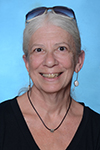
Libby Balter Blume
Professor Emerita
Professor of Psychology
313-578-0446
blumelb@udmercy.edu

Karen Brown
Adjunct Professor
313-657-1777
brownkc50@gmail.com

Raúl Echevarria
Adjunct Professor
708-522-4873
echevara@udmercy.edu
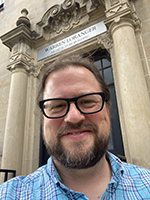
Francis Grunow
Adjunct Professor
grunowfm@udmercy.edu
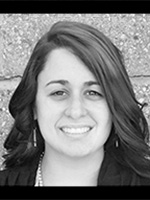
Toni Henry
Designer and Project Manager
Adjunct Professor
313-993-1037
henrytc@udmercy.edu
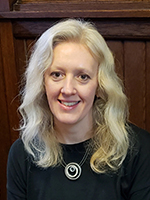
Christina Heximer
Co-Executive Director Detroit Collaborative Design Center
Adjunct Professor
313-993-1037
heximech@udmercy.edu
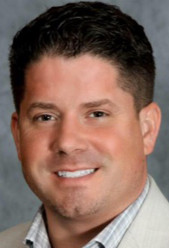
Bryan Kieler
Adjunct Professor
586-801-5488
kielerbk@udmercy.edu
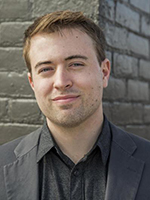
Clarke Lewis
Adjunct Professor
lewiscg@udmercy.edu

Erika Lindsay
Associate Professor of Architecture and Community Development
313-993-1532
lindsaej@udmercy.edu
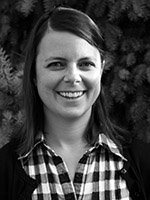
Ceara O'Leary
Professor of Practice
313-993-1037
olearycm@udmercy.edu
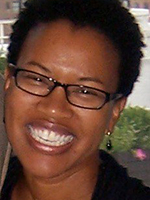
Sarida Scott
Adjunct Professor
313-993-1533
scottsa4@udmercy.edu
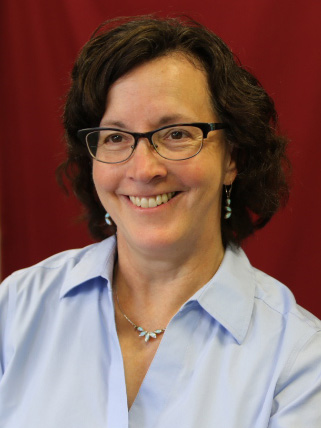
Linda Slowik
Professor of Psychology
313-993-1623
slowiklh@udmercy.edu
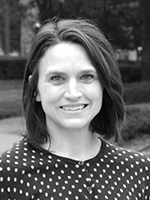
Virginia Stanard
Associate Professor of Architecture and Community Development
313-442-3520
stanarvi@udmercy.edu
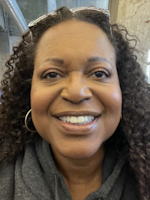
Michelle Story-Stewart
Adjunct Professor
storyml@udmercy.edu
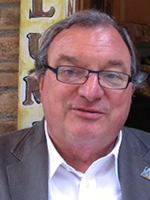
Stephen Vogel
Distinguished Professor
Dean Emeritus
313-231-7616
vogelsp@udmercy.edu
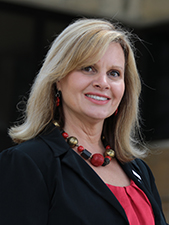
Lara Wasner
Director of Language and Cultural Training
Study Abroad Coordinator
Fulbright Scholar Liaison
Adjunct Professor
313-993-1191
wasnerle@udmercy.edu
"The MCD experience opened my eyes to worlds within our collective world. I entered the program to expand my skillset and awareness of the field of community development. I left the program a different person. Thanks to the incredible people who are attracted to this work, my life has been transformed through my time in the MCD program."
